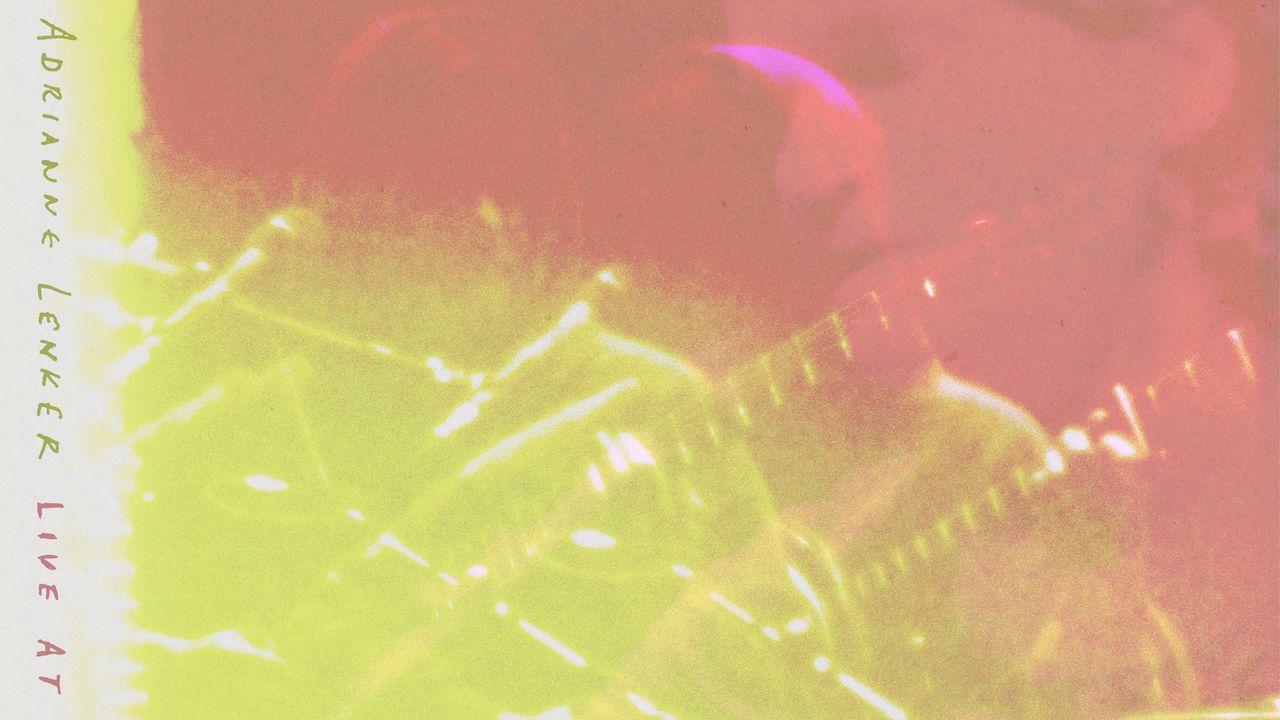Shortly after Adrianne Lenker’s arrival onstage at Portland’s Revolution Hall, the audience’s anticipatory silence turns giddy, breaking into warm laughter that wafts across the room like a rustling breeze. “Some really good giggles going on,” she says winkingly. “All I did is walk on.” Recorded over three nights and brimming with 43 tracks, Live at Revolution Hall is stitched through with such intimate moments. Surrounding live performances are soundchecks, joyous greetings from attendees, appearances from Lenker’s dog Oso, and sentimental exchanges with friends. In one snippet, Lenker begins plucking “Now Westlin Winds,” a ballad by Scottish folk singer Dick Gaughan based on Robert Burns’ “Composed in August,” on her guitar. She declares she can’t sing it, then proceeds to recite each verse in full, raising her voice at one point to compete with a motorcycle’s hapless roar. The result is a vivid archive not just of time but also of space—the ephemera orbiting any formal live performance.
Space has become a growing fixture in Lenker’s music, in both her work as the clear-eyed lodestar of the folk rock band Big Thief and as a solo artist. She recorded 2020’s songs/instrumentals straight to tape in a remote western Massachusetts cabin because it reminded her of “the inside of an acoustic guitar.” A similar process followed for 2024’s Bright Future, where a coterie of collaborators joined her in chasing each song’s unfolding in an atmosphere of immediacy. (Two of them, alt-R&B artist Nick Hakim and violinist Josefin Runsteen, accompany Lenker for the majority of Live at Revolution Hall.) In the celestial body of Lenker’s music, songs are flickering instances rather than any kind of fixed point.
On Live at Revolution Hall, Lenker partnered with her long-time friend and collaborator, Andrew Sarlo, who refracts those three Portland nights through three different recording formats. Operating as a modern-day Alan Lomax, Sarlo used a handheld cassette recorder, a four-channel cassette recorder, and a reel-to-reel tape machine to move listeners around: from soundcheck to live performance, from back of the hall to front, from private moments to public ones. “promise is a pendulum,” off Big Thief’s Dragon New Warm Mountain I Believe In You, begins at practice, crackling with lo-fi atmosphere as though Lenker were in the 1920s auditioning for Ralph Peer, then suddenly, seamlessly, gives way to the saturated live version—all luminous color. The most beguiling of these transitions occurs on “anything,” which shifts four times, widening the view to encapsulate the audience’s sing-along, then narrowing it to focus Lenker’s voice, and finally landing at what sounds like the back of the room where the song echoes at a hazy distance.
